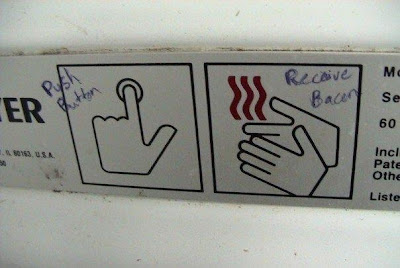There are several words out there where you can substitute a each single vowel and have a real word. For instance: pat, pet, pit, pot, and put. Unfortunately, one great group of letters is missing a single word to join this group. That group is champ, chimp, chomp, and chump. Every single word in the group is a fun word. But there is no such thing as a "chemp".
My interest is in developing some sort of definition for chemp that can make it available for daily use. The urban dictionary claims three possibilities, though the first one is a bit crude for daily use and the last just isn't convincing to me. The second definition holds possibility:
To vent frustration by riffing creatively about a situation. This is not the same as kvetching or bitching, though it is a form of complaining. A good chemp is funny. The person or people who chemp or listen to a chemp walk away feeling that the situation still sucks, but at least they can laugh about it.
Of course, most people at urban dictionary prefer the more lude definition, so this may not work either.
I also like the possibility of chemp being somewhere on the continuum between a champ and a chump. Obviously, it is much closer to being a champ than a chump, however. So the definition would have to be something like almost being a champ but not quite. Second place maybe? I don't really like that because chemp definitely does sound a little derisive. Perhaps it is more like a champ who clearly doesn't deserve it. Like the Duke Blue Devils were the chemps in 2001. Or Lance Armstrong is a seven time Tour de France chemp.
This definition also has the possibility of being used antagonistically towards friends. For instance, your buddy makes basket in a game of H-O-R-S-E and gets a little too amped up about it pumping his fist and grunt-yelling, "Yeah!" You could respond with "Nice one chemp." I think this would piss him off.
Anyway, that is where I am with it now. Other suggestions are certainly welcome.


